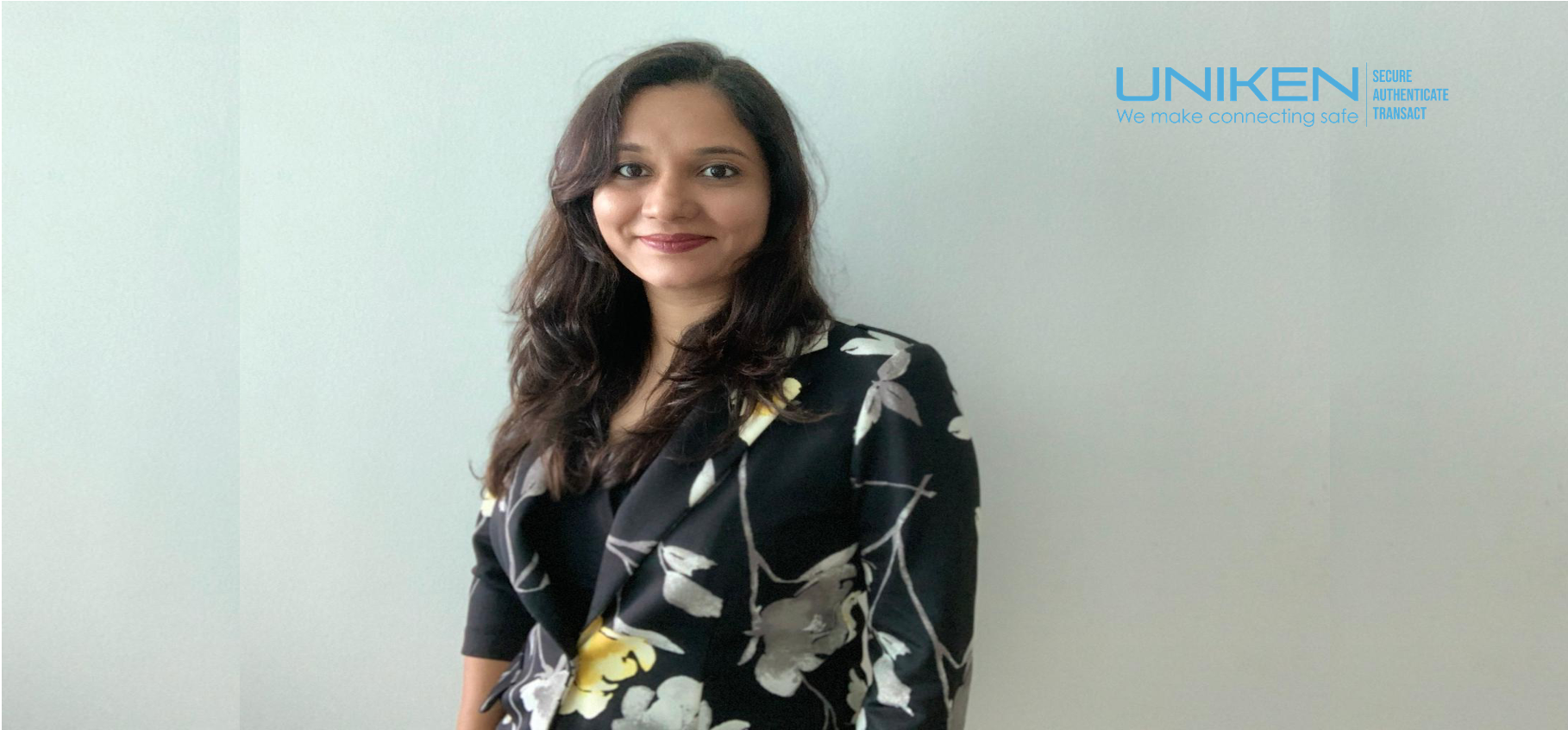
Date: 17 Jul 2020

Date: 17 Jul 2020

1) Tell us more about yourself. How did you get to your role at Uniken and what do you do in this role?
I joined Uniken about 6 months ago to spearhead its growth plans in APAC. Prior to joining Uniken I worked in the financial services industry for 19 years. Most recently, I was with the Bank of Singapore, and prior to that I worked with Barclays and JP Morgan in Singapore.
I first got to know about Uniken when they pitched to me at one of my previous employers. I was so impressed with their security solution; I decided I had to be a part of this company’s growth journey.
2) What’s the Uniken story, ie. how did Uniken come about?
Uniken was founded in India 7 years ago. A fresh team came in three years ago and has built the Uniken of today – with the simple aim to make connections secure and easy. Adding security layers to your digital channels means adding friction to the customer experience. For an organization embarking on a digital transformation journey, this poses a big dilemma. Our patented security solution REL-ID was built with the key focus on driving customer engagement and eliminating every major vector of fraud and breach.
We have since expanded into Latin America, the US, APAC, Europe, Middle East, and Africa — with global headquarters in the US and regional APAC headquarters in Singapore.
3) Could you share with us real-world client use cases of your technology – for us to better understand what your technology is about, and why this is important?
Our product is industry agnostic, hence we work with various sectors such as financial services, education, airlines, and retail. I can share two use cases clients consistently deploy our solution for. The first is around protecting mobile apps and all transactions conducted with them. The second use case is about 100% transaction verification in business banking. Both examples take fraud to zero for our clients and drive a tremendous amount of engagement given the ease of use. Making security invisible and frictionless has its advantages across the board.
4) You’re very much in the news recently, from news about Bank of India using your REL-ID technology to REL-ID gaining FIDO2 recognition. Congratulations on these milestones! Could you tell us more about these achievements?
Thanks, and yes, we have been in the news a lot lately. Bank of India (BOI) was all about delivering for a customer. They are our oldest customer and as they have grown so have we. For us it was about listening to them and their customers along the way and continuing to strengthen our product set to meet their changing needs. As BOI saw the threat landscape change, they realized that deploying REL-ID across the board was the obvious choice, we had what they needed because we listened along the way.
Our recent FIDO2 certification is another example of listening to the market, i.e. in providing a password-less solution that meets an industry standard and in having a continual push for innovation. With FIDO2 our solution can allow our clients to use an industry standard for password-less cryptographic authentication and combine it with our other award-winning features, allowing customers to lower their cost of ownership while offering the range of client authentication techniques.
5) What are your thoughts about mobile security of the future? Will COVID-19 change anything in this space?
In the new normal post COVID-19, the way people conduct their lives will change and digital interaction will be the norm rather than an option. We now have to ensure security and convenience to meet the needs of the new normal. Just look at Zoom and why they have succeeded recently. They are simple, easy and consistent, but they forgot to focus on security and privacy.
The emergence of mobile as the dominant channel creates the opportunity for businesses to rethink their security paradigm, allowing them to pivot to a customer-centric model that delivers a better customer experience and unlocks the true power of digital transformation.
6) Describe cybersecurity in 30 words.
Cybersecurity is about protecting one’s systems, information, assets and dollars. But above these, it is also about respecting individual privacy and protecting the brand.